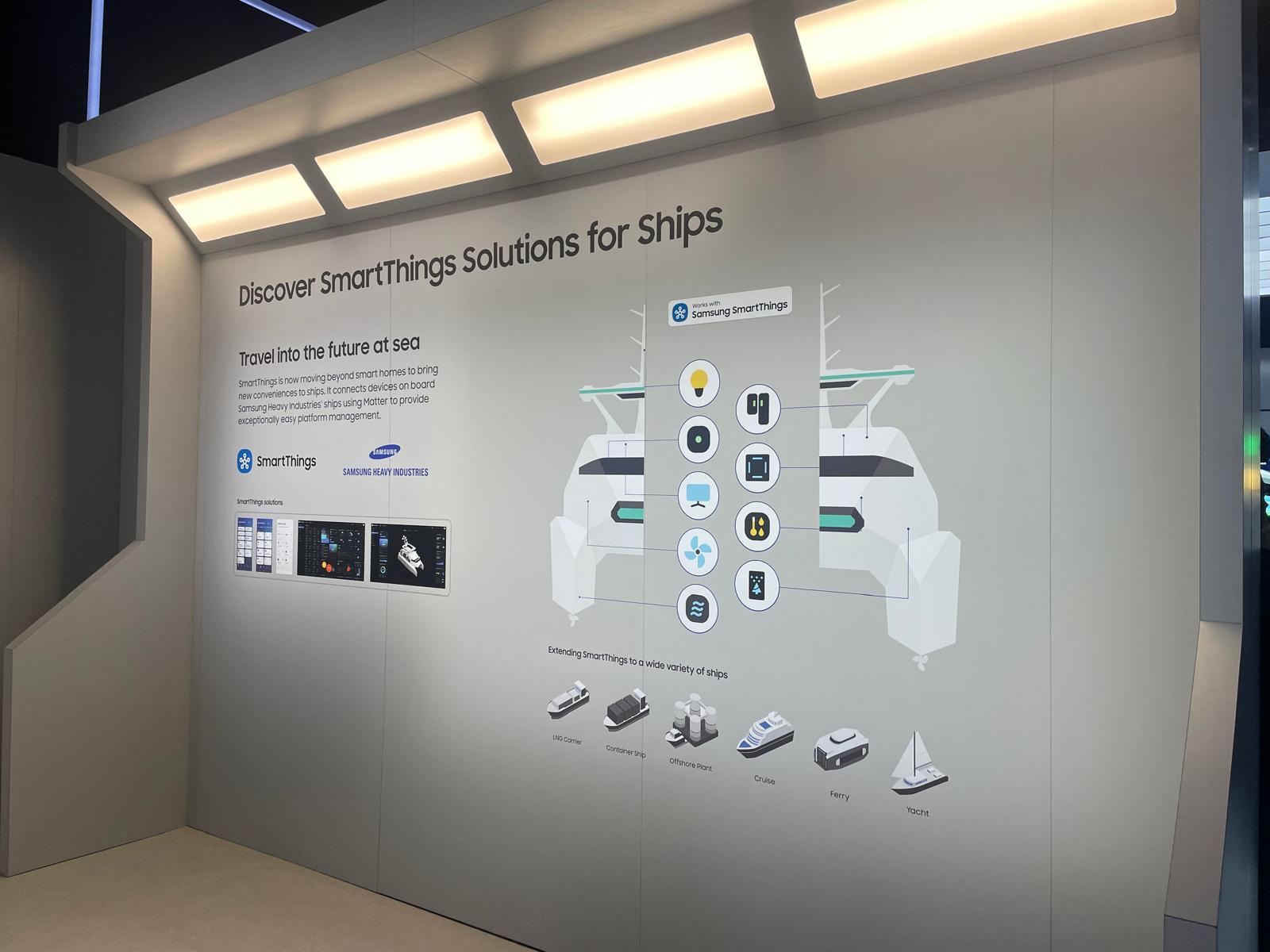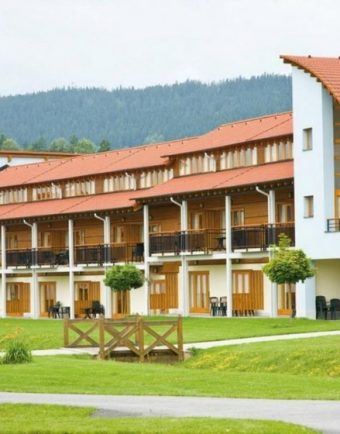

Přejít k obsahu | Přejít k hlavnímu menu | Přejít k vyhledávání
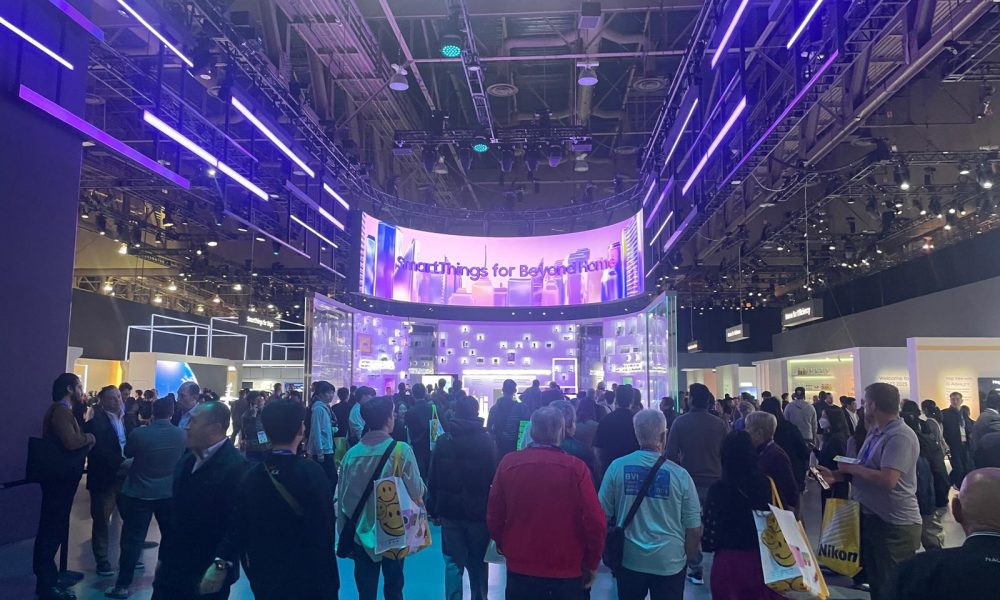
Talking to Alex Elgart about the world’s leading trade shows is fun. He doesn’t talk about them in superlatives. He’s not afraid to say that some directions of innovation are an inflated bubble. Or that many ‘off the record’ exhibitors complain that presenting at trade shows doesn’t bring them the
Talking to Alex Elgart about the world’s leading trade shows is fun. He doesn’t talk about them in superlatives. He’s not afraid to say that some directions of innovation are an inflated bubble. Or that many ‘off the record’ exhibitors complain that presenting at trade shows doesn’t bring them the expected business results. At the same time, they don’t crow about every new technology and innovation. Similarly, he also talked about the ‘show of shows’ – CES 2025, held in the famous American Las Vegas, where he was to find out how much of a role the Czech company ELKO EP will play in the world of future smart homes. Don’t just expect praise, he was again extremely open and honest. Whether it’s Vegas, AI or the big players.
Alex, so what’s Vegas like? Of course, I’m thinking of CES 2025…
If you’re coming for the first time, you’re obviously overwhelmed by the pomp of the event. It’s huge, hardly comparable to anything you can experience in Europe. It is spread out over a large number of exhibition halls and pavilions, you can walk around for hours and still discover something new. Perhaps the only smaller cousin in Europe is Berlin’s IFA, but it focuses almost exclusively on consumer electronics. In Vegas, by contrast, you’ll find electric cars, robotics, smart homes. The giant players are exhibiting here, but I was also surprised that national attributes still play a significant role.
In what sense?
It’s not just about products and brands. But many countries have their own space here to demonstrate their technological innovations. The Chinese, but also, for example, the Italians, the Swiss or the Israelis are showing off their new products. And at the same time, they are sort of testing the potential of their startups in advance, because there are really masses of people and global competition here – so it’s a kind of litmus test of whether new solutions really have a chance to break through.
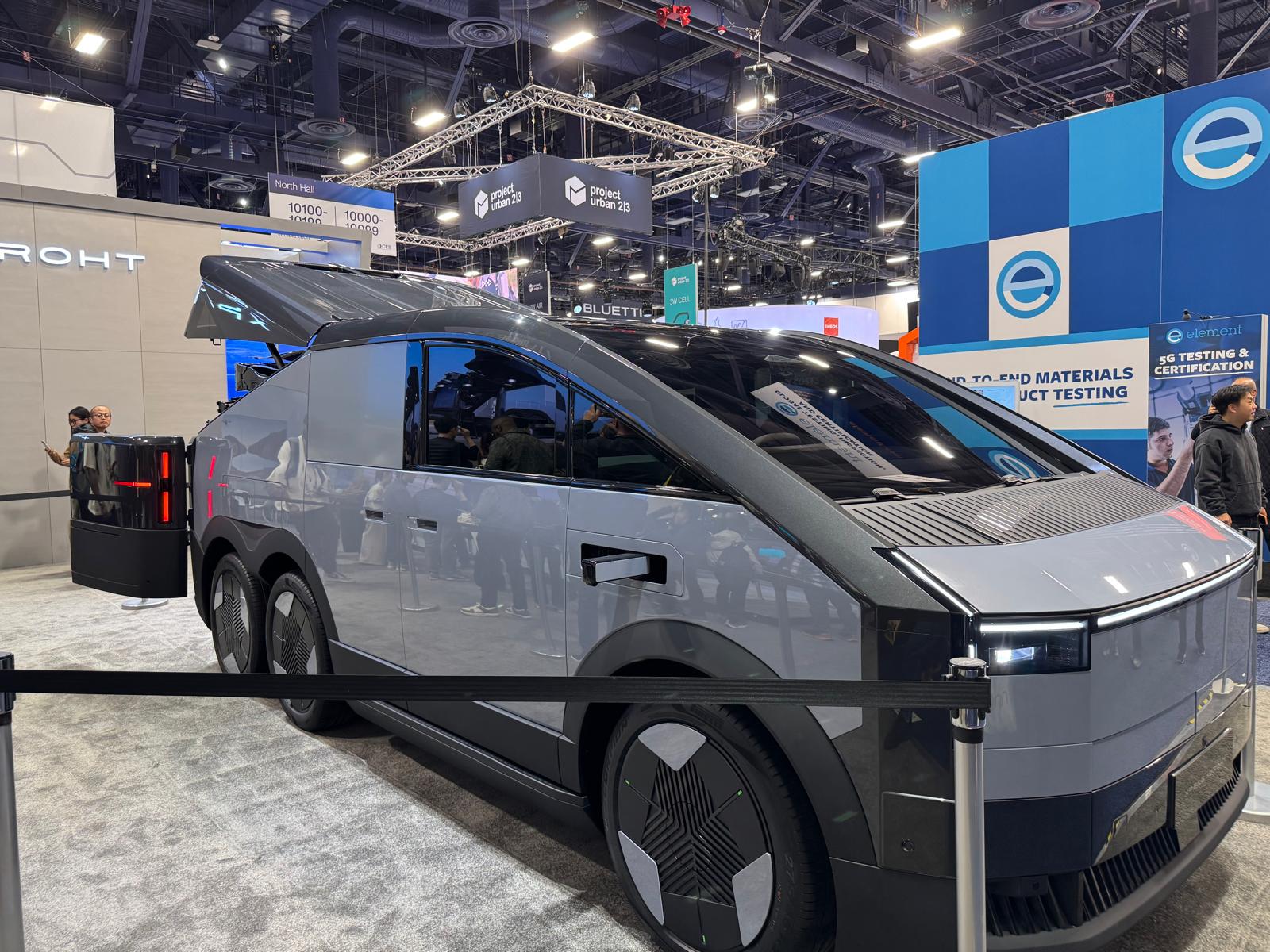
Isn’t the concentrated news a bit detrimental to the overall orientation of the show?
Yes. On the one hand it’s clear, on the other it doesn’t quite make business logic. It often happens that on one stand there are Matter products, but a little further away there are smart toothbrushes, robotic vacuum cleaners, energy management for cars, medical devices. All of them are cursing the two letters AI, which must now be used for anything – even something that has little to do with artificial intelligence as such.
When we get to the topic of smart homes – what intrigued you the most?
For me, the most important thing is to see and hear where the world’s biggest manufacturers are heading. In this respect, it is extremely interesting to watch Samsung or LG. Both companies are developing their own ecosystem into which they plug third-party products and solutions. Whether the thing in question is called SmartThings (Samsung) or ThingQ (LG), you’re guaranteed that it will spread really massively – because both manufacturers have a noticeable market share and perfectly crafted marketing. At the same time, they are able and ready to help us with marketing too, if our innovation can fit into their portfolio.
What is their message to companies like ELKO EP and solutions like iNELS?
Be compatible. Come integrate into the biggest ecosystems in the world. You support us and in return we will support you as a manufacturer by seeing you together with us. And it really showed at the booths. SmartThings had a projection screen in the middle of the booth where they were constantly showing how smart humans live – and what all around them works automatically when they use the system itself and third-party apps to control lights, heating, cameras, sensors. And it goes further – it’s packed with gadgets for healthy living or, for example, electric mobility, in which all the big brands have decided to invest heavily.
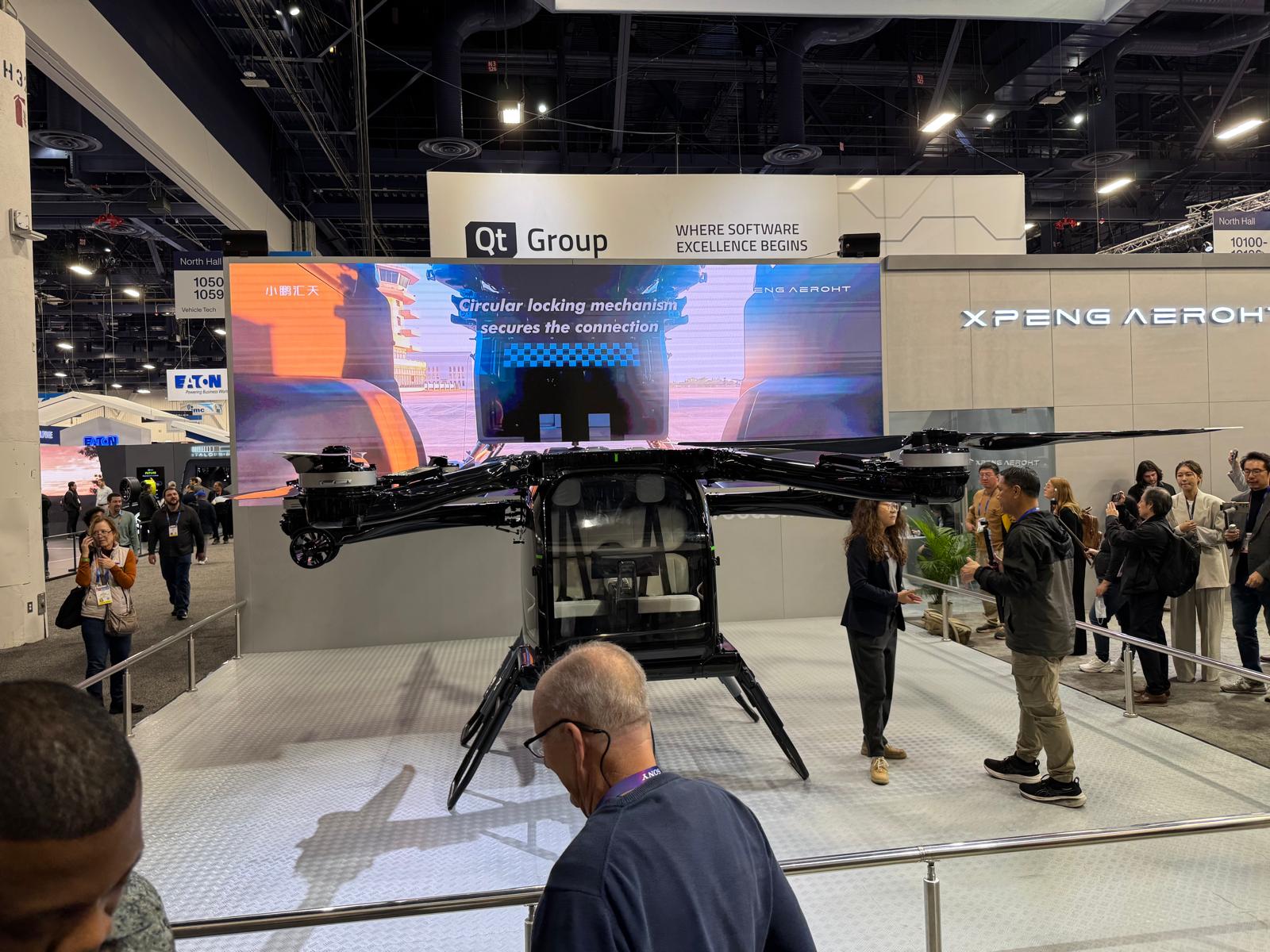
And ThingQ’s competitors have how?
LG recently bought a Dutch company that already has a large part of SMART Home product and protocol integrations in its little finger. So logically they used this technology as a building block in building ThingQ. At their booth, the most visible element was a home robot that is both a voice assistant and a gateway. It resembles a face in shape, has a camera in it, and in addition to communicating with you by voice, it also uses artificial intelligence to recognize various objects, gestures or the user’s mood. Although it is only a concept so far, the idea intrigues me. I imagine that when this Furon (as LG’s assistant is called) recognizes that I haven’t slept well today, it will command our Matter dimmer to increase the intensity of the light in the room, ensuring a brisker start to the day.
You think people don’t want more intelligence than necessary?
Yes, we do. Voice assistants were predicted to skyrocket years ago. But there’s nothing like it happening in middle-class homes. Users want simplicity above all. Fewer smart gates, simpler settings. That’s where Matter meets them.
Isn’t it because users are still afraid that the ‘smart home’ – as a young technology – won’t work to their liking?
I believe not so much anymore. Rather, I’m seeing a different trend where manufacturers are no longer even trying to hide the fact that they are tracking users with their technology so that they can better target advertising or sell an add-on product or service. There were many such advertising panels that have eyes or cameras that track shoppers in the store and evaluate their behaviour.
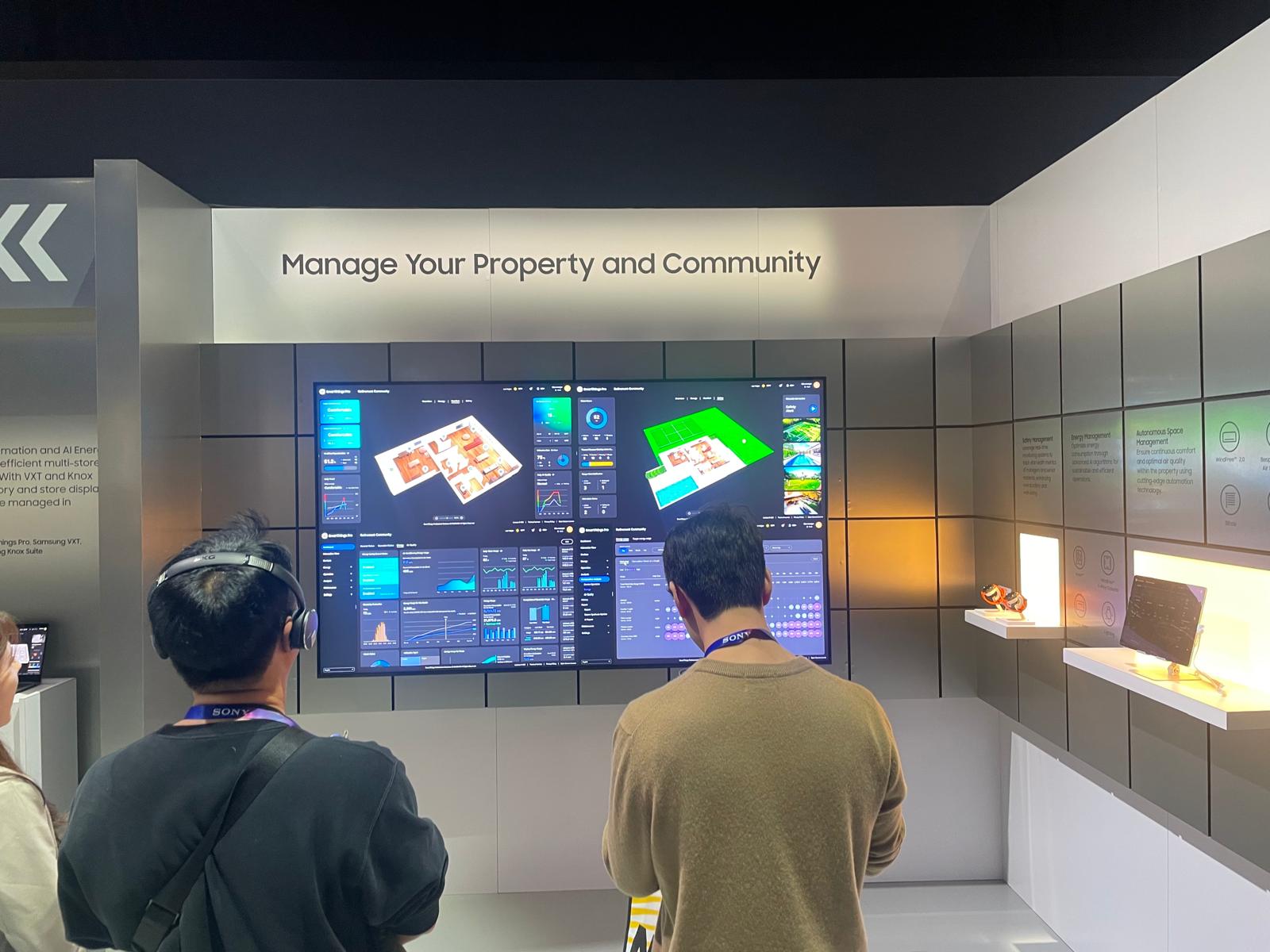
What in particular did you say a big “wow” at during the show?
I went to Vegas expecting to see something new in the consumer Smart Home space, which is where the Matter protocol devices belong. And that didn’t happen. You see smart lights, lighting, appliances. Even tiles on the wall that play with color. While Matter was seen and heard throughout the Smart Home pavilion and at the aforementioned big tech companies, I couldn’t find pro and quality devices, or notice the technology shifting towards heating or shading controls.
And where is the space for ELKO EP?
The space is really very big. And not just for Matter, but for our wireless technology in general. Nobody has Matter-certified smart switches. We are still unique in this, not only in Europe, but in the whole world. Nobody else at CES 2025 was showing anything like this, we’re not even monitoring any direct competition. There is huge potential in this if we become part of large ecosystems.
Who was the most interesting person you met? And what did you possibly say to each other?
I met an overwhelming number of people, but most of them agreed that this year’s Vegas was not a groundbreaking gathering. We talked a lot afterwards about not letting technology spy on us any more than necessary. Because that was my most intense feeling about the bang-up innovations.
